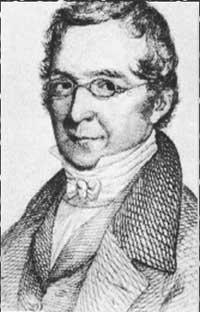Louis Joseph GAY-LUSSAC
French chemist and physicist born in 1778 in Saint-Leonard-de-Noblat. As a young man he was able to take advantage of the environment that the French Revolution created for research. France was no exception.
Scientists claimed in the name of all the people their discoveries and did them great honors. So things, among scientists there was an excellent environment for research and Gay-Lussac did not let the option go. He took care of almost all areas of chemistry, but did the most outstanding work with gas.

In 1802 he said that the volume of a gas at constant pressure is proportional to its absolute temperature. In other words, he stated that as the temperature increases all gases expand in the same proportion. Gay-Lussac relied on this discovery to assert that all Avogadro gases have the same number of particles per unit of volume at a given temperature. As we know, this idea was not considered by anyone in the coming decades.
Since 1804 he used the static globe for his experiments. Specifically, the objective of these trips was to analyze the changes produced by altitude in gravity and in air composition. That year exceeded 7,000 m in height.
In the years 1807 and 1808, the English chemist Davy managed to isolate certain elements using electricity. Napoleon offered Gay-Lussac and Thenard resources to build a giant battery, but the French reached similar conclusions using potassium isolated by Davy himself. Boron oxide was manipulated with potassium and they managed to isolate boron in its basic form. His discovery was announced in June 1808, nine days before Davy.
Based on Courtois's research on iodine, he deduced that it is a differentiated element. In 1811 he discovered the basic composition of sugar. That same year he published the book Latest Research on Physics and Chemistry. In 1815 he isolated cyanogens and published new data on the study of chlorine.
In 1831 he was called by the court of King Louis Philip. He was appointed to the French Parliament and during the last years of his life he went on to study old laws and propose new ones.
She was 72 years old when on May 9, 1850 death discovered her in Paris and took her from this world.





